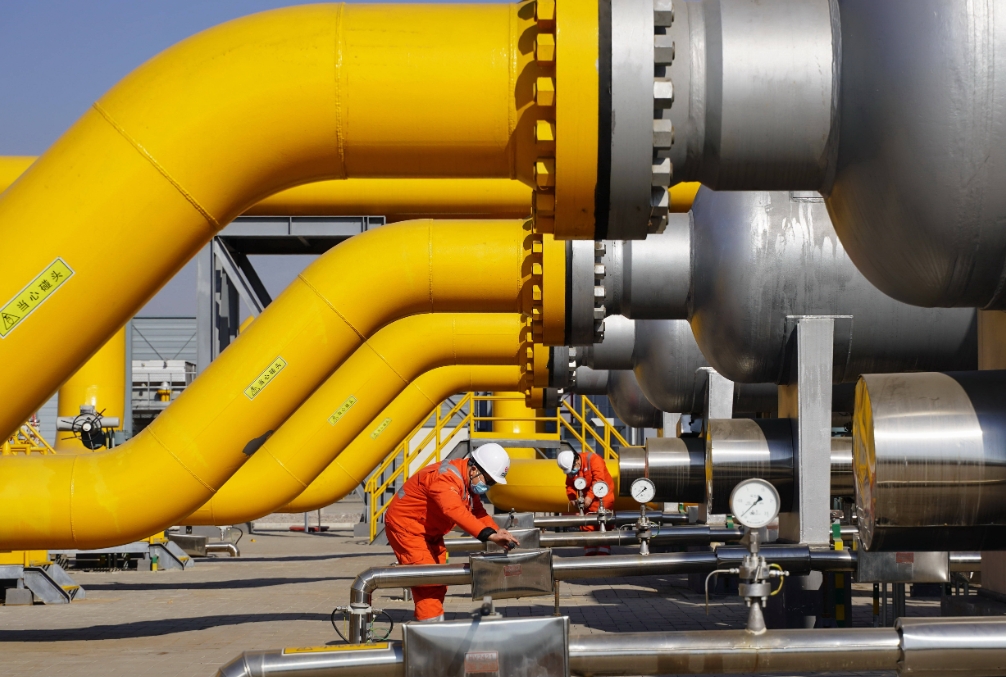The launch of the interconnector will make operational the pipeline from the town of Novi Iskar in Bulgaria to the Serbian city of Nis, allowing Belgrade to access gas from Azerbaijan and LNG terminal in the Greek port of Alexandroupolis.
The capacity of the pipeline on the Serbian side is 1.8 cubic metres a year, which accounts for 60% of the country's annual gas needs.
The European Commision donated 49.6 million euros ($53.37 million) for construction of the interconnector. Another 25 million euros was secured in a single loan from the European Investment Bank while 22.5 million was provided by Serbia.
"With this interconnector we are securing alternative gas supplies, apart from the Russian gas," Serbian energy minister, Dubravka Djedovic Handanovic said.
Azerbaijani President Ilham Aliyev and Bulgaria's President Rumen Radev attended the ceremony in Nis.
"Today we are changing the energy map of Europe," Radev said.
"The interconnector is significant for the entire region. The war in Ukraine made us think about good neighbourly relations and support."
On Nov 15, Serbia signed a deal with Azerbaijan to purchase 400 million cubic metres of natural gas per year from 2024.
"If in 2021, our gas exports to Europe totalled a little more than 8 billion cubic metres, then this year the volume of supplies will reach around 12 billion cubic metres," Aliyev said.
European countries now account for half of all Azerbaijan's gas deliveries, Aliyev said. Baku is well on the way to doubling its gas supplies to Europe to 20 billion cubic metres by 2027, he said.
Azerbaijan is considered by Europe as an alternative source of energy imports amid a deep political fallout with Moscow over the war in Ukraine and sharp cuts in Russian gas purchases.
